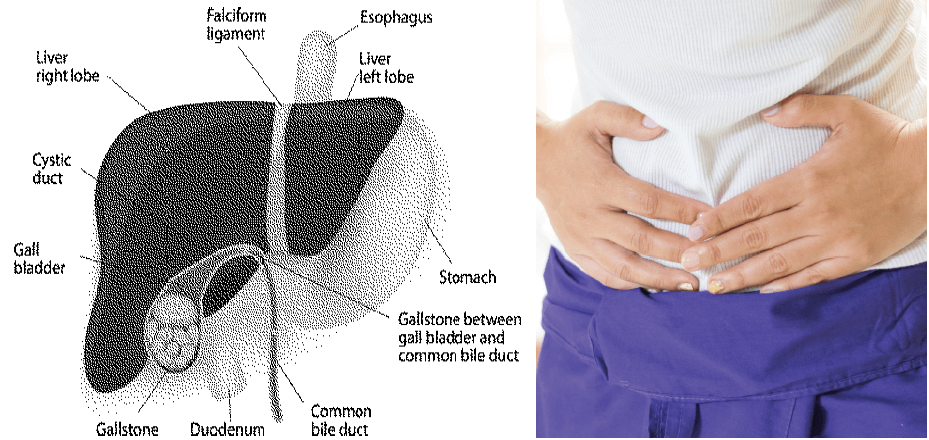The gallbladder is a small pear-shaped pouch situated at the undersurface of the liver which secretes a greenish fluid called “bile” which aids in digestion. Gallstones are the most common disease of the gallbladder. Technically, we call this disease “cholelithiasis”.
About 80% of gallstones patients are asymptomatic, i.e., show no visible symptoms. Gallstones are usually discovered incidentally during abdominal ultrasound scans done for another cause. The most direct and effective course of treatment is surgery which provides excellent results. Gallstones can be divided into three main types: cholesterol, pigment or mixed stones. In the Asian populations, the majority of them are pigment stones.

Causes
The process of gallstones formation is quite complex and many areas remain unclear. Obesity, high-calorie diets and certain medications (e.g. oral contraceptives) can increase secretion of cholesterol and can saturate the bile and added incomplete emptying of the gallbladder can cause these stones. Hence, to avoid inevitable recurrence of gallstones, the whole gallbladder must be removed surgically and not just the stones.
Also Read:
Tuberculosis: An Ancient Foe
TAILORx Study For Breast Cancer Patients
Symptoms
Patients usually have pain in the upper abdomen, feel nausea and vomiting. A few patients may even have this for months with intermittent relief periods without any symptoms. Patients can come with acute symptoms which may warrant surgery. The treating surgeon diagnoses it with an ultrasound scan and visible symptoms.
Earlier, the gallstones were worrisome causing jaundice due to lack of awareness among the patients and delayed approach to the doctor as they believed that these stones can be melted. Unfortunately, these stones, unlike the urinary stones, cannot be melted or crushed into pieces and removed. With the advent of new surgical laparoscopic (camera) approaches, patients can be easily discharged on the next day of surgery with a completely normal diet with minimal pain and small scars. A person can function very well without a gallbladder. So, do not hesitate to approach your nearest surgeon if you suffer from gallstones and get yourself treated as it’s a completely curable disease.
About the Author
Dr. Jayadatta Pawar is a general surgeon. She is currently involved in doing private practice and shares a keen interest in creating awareness about public health.

